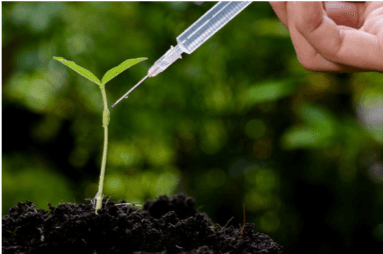
Three Reasons It's Important to Know Where Your Food Originated
At this very moment, you probably have very little idea where your food originated. You have a vague idea that you should care about the origins of your food, but you have too much else to think about. You’re responsible for feeding your family, and a task like that can be a lot of pressure.
You drive to a grocery store, rifle through the meat, and produce section, and pick out items that look reasonably healthy for your family.
You worry about nutrition, but you do so on a budget. You worry about picky eaters, and what’s on sale, and what ways you can disguise healthy food to make it look more appealing. You have to keep a running list of who will eat what, and you have to cross-reference that list with dietary needs and budgetary needs.
After all of that, it’s pretty easy to see why you don’t have time, or energy to consider food origin.
The cruel catch, however, is that if you know your food’s origin, you can easily accomplish some of your other food goals. Knowing where your food originated shouldn’t be an afterthought.
Three Ways You Benefit From Knowing Where Your Food Originated
To illustrate how important food origin is, pretend for a moment that in a perfect world, you could purchase all of your family’s food from a local farmer’s market. At this market, you would know all of the vendors, their location, and their practices. In that perfect world, it’s easy to see the three benefits of knowing your food’s origin.
1. You Can Make Healthier Choices Because You’re Informed
 Let’s say that your family loves vegetables. They just can’t get enough of them. Great. You want to give them as many opportunities to eat vegetables as you possibly can. At your picture-perfect farmer’s market, there are tons of vendors who sell vegetables. Already, your job is pretty easy, but knowing the origin, makes it even easier.
Let’s say that your family loves vegetables. They just can’t get enough of them. Great. You want to give them as many opportunities to eat vegetables as you possibly can. At your picture-perfect farmer’s market, there are tons of vendors who sell vegetables. Already, your job is pretty easy, but knowing the origin, makes it even easier.
That’s because you know which farmers genetically modify their crops. You know which farmer’s use pesticides. You know which farmers are organic. You know more about what food is safe. That gives you an awful lot of power to choose what foods are best for your family. Instead of unwittingly purchasing peppers that have routinely been sprayed with harmful pesticides, you can move along to a pesticide-free farmer.
2. You Can Choose Fresher Food
If one farmer lives on the outskirts of town and brings produce and food in daily, you know it’s going to be fresh, and delicious. If another farmer lives hours away and hauls food in every couple of days, you might wonder more about the quality.
In the end, a few days difference in the life of a tomato, might not matter to you. Knowing that these set of apples are a few days fresher than those apples might not be the only factor to consider when buying them. Sure, a slight difference in freshness might not tip the scale, but you have a right to know which apples and tomatoes are fresher.
3. You Can Better Understand Your Own Environmental Impact
 When you choose what meat and poultry your family eats, you will have all the facts about how it was raised, how it was treated, and what it was fed. You can know the name of the farmer who raised the cows and chickens, and you can better determine that the animals were raised humanely.
When you choose what meat and poultry your family eats, you will have all the facts about how it was raised, how it was treated, and what it was fed. You can know the name of the farmer who raised the cows and chickens, and you can better determine that the animals were raised humanely.
You’ll even know how far it had to travel to get to you. The greater the distance your food travels, the bigger your carbon footprint. This might encourage you to choose vendors that were closer to your home.
Knowing Your Food’s Origin is Empowering
Knowing where your food originated actually gives you a lot more power as a consumer. If you step away from the fantasy farmer’s market and drift back into the grocery store, you can see the effect of this power.
Why would you choose to produce without knowing how long it sat in a truck? Why would you choose to eat beef if you didn’t know what the animal was fed? Why would accept knowing such a limited amount of what you are going to put into your body? You wouldn’t if you could help it, and you shouldn’t because you can. All you need is to know more about where your food comes from.
